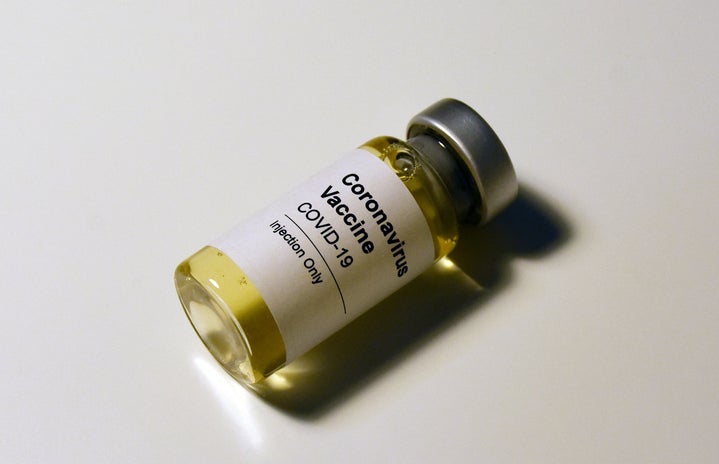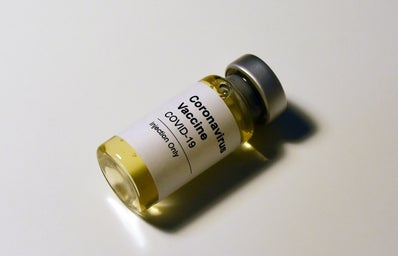“This is an historical announcement for Brazil and for the world. The Butanvac is the first 100% national vaccine, fully developed and produced in Brazil by the Butantan Institute, that is brazilian’s pride”, declared São Paulo’s state governor, João Doria.
On march 26, Mr. Doria and the Butantan’s director, Dimas Covas, announced during a press conference the new immunizing to fight the virus that was killing almost 4.000 people per day at that time in the country.
“The request for authorization to start clinical trials in humans must be submitted to the National Health Surveillance Agency (Anvisa) during the course of today”, Mr. Covas said. But, almost 2 months later the trials haven’t started yet.
- “A 100% national vaccine”
-
When announcing the immunizer, João Doria declared that it would be totally national. However the professor Peter Palese from the Mount Sinai Institute claimed that the technology used was developed by him and his team.
Butantan didn’t deny, but made clear that all the production of the doses are national and almost all the project was elaborated by them as well. “Among the steps made entirely by techniques developed by the São Paulo’s Institute, are the multiplication of the virus, cultivation conditions, ingredients, adaptation to eggs, conservation, purification, inactivation of the virus, dose escalation, clinical and regulatory studies, in addition to registration.”
What is more important is that the inputs for its production are also completely national. Bottles, packaging and eggs -yes, hen eggs- are supplies with easy fabrication in the territory.
This way, the making of the doses won’t have to be suspended because of the lack of inputs as happened with the Coronavac: Butantan announced on may 14 they temporarily stopped the fabrication, since they are with API (active pharmaceutical ingredient) -the base for the vaccine- undersupplied.
- Vaccine technology
-
To make the new immunizer, an inactive Newcastle virus – a harmless disease to humans – is genetically modified to receive the SARS-COV-2 protein responsible for affecting the human cells. A similar method is used in Oxford’s and in Janssen’s, except for the fact that they use another vector.
Then, the virus is put inside an egg where he feeds and multiplies, becoming enough to produce 2 doses of vaccine, according to estimates. After that, the virus is inactivated, purified and potted. The same is done in the production of the influenza flu vaccine that is applied annually in the country.
After the application of the vaccine, anticorps shall be produced by the organisms to prevent a real infection.
- The eggs
-
“There is still no vaccine against covid-19 produced in eggs. Why is it important to produce eggs? First, there are many factories in the world that use this technology to produce flu vaccines. Second, it is cheaper than most modern technologies, because this is a traditional technology. Third, it is safe. The flu vaccine is the most used in the world, 80 million people are vaccinated every year in Brazil”, Mr. Covas declared.
The Butantan announced they will make 40 million doses by June and for that they will have to buy about 20 million eggs, since they estimate that 2 doses will be made per egg.
Part of the population became concerned with the raise in the eggs price because of it. But Brazil produces around 53,5 billions of eggs per year and the ones used in the dose’s fabrication aren’t the same type of the ones found on the supermarket, they’re embrionyc eggs. So, it shall have no effect on its prices.
“We already have a certain stock, schedule for receiving suppliers that serve Butantan throughout the year. The birds are already housed, they (suppliers) already have control processes and delivery trucks.” the Institute’s production manager, Diego Macedo said.
- Effectiveness tests
-
Despite the production having already started, nothing guarantees that ANVISA will approve the vaccine.
It is important to remember that recently they did not approve the Russian vaccine, Sputnik-V, that is used in neighboring countries like Argentina. The reason for the measure was due to the replicating adenovirus found in every allotment analyzed.
On may 14, Butantan said that the agency was asking for more information for the third time to analyze the request for the phases 1 and 2 to start.
The vaccine was already tested on animals. Now, the Butantan awaits the ANVISA’s authorization to test the security and efficiency of the new immunizing on humans. The necessary amount of doses used to immunize a person also will be part of these trials.
João Doria and the Butantan Institute requested urgency for the agency’s liberation to start the trials, considering that the method is already used in the country and the gravity of the situation. Especially now, time can save lives.
———————————————————————-
The article above was edited by Carolina Rodrigues.
Liked this type of content? Check Her Campus Casper Libero home page for more!


